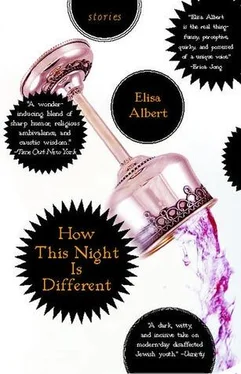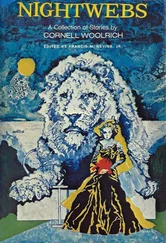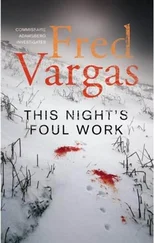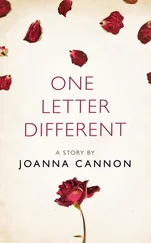The driver giggles to himself, perhaps reliving a funny Jim Carrey moment. Debra is herself rather partial to Jim Carrey but has no way of communicating this, so the opportunity for bonding is moot. She gives him the euros, which seem like Monopoly money, and he accelerates before she’s even closed the door, mid- Obrigada.
It occurs to Debra, listening to his engine fade away, that she is potentially screwed. Alone in a quiet suburb with no way to get back to the city, to the old woman with the chin hair who runs her pensão. Debra stands on the wide, paved street in front of the synagogue and invents a worst-case scenario in which she will have to knock on the door of a house and ask to use a phone. Would that make her an unwise lone-woman traveler? What would a Let’s Go writer do? This is her fail-safe bumper-sticker question, and over the past few weeks she’s winnowed it down to a partially familiar acronym: WWALGWD?
The synagogue seems closed up, like a summer home in winter. Or a winter home in summer. Like an out-of-season home, at any rate. The front gate is locked. Debra mock-rattles it with her fists closed around two iron stems. There is a bell, the kind that glows weakly until you press it, when instantly the small light within is put out. She presses it, and a clanging ring echoes on the block. The stylish houses and well-groomed shrubbery do not flinch. Given that it’s Friday night, the start of the Sabbath, the quiet is disconcerting.
At home, at the synagogue to which Debra’s family has always belonged but only sporadically attended, the expansive parking lot is a hub of pre- Shabbes activity and gossip. It had been in that parking lot, accosted by a group of squawking sisterhood ladies, that a twelve-year-old Debra had found out her mother was a convert. “Debra! Such a gorgeous girl! That blond hair! Our little shiksa !”
She had, of course, gone straight to her parents, who were talking to another couple in the lobby. What’s a shiksa?
A sit-down with the rabbi had been arranged. He was a young, liberal, recent seminary grad. A few years later he got himself fired for performing a gay commitment ceremony.
“Debra,” he had said to her in his small, wood-paneled office. “Your mother is Jewish and your father is Jewish, and that means that you are a Jew.” She had nodded obediently, nurturing the first, bright green shoots of a massive crush on him. “When someone decides they want to become Jewish, like your mom did, they become a hundred percent Jewish.”
“Okay,” Debra had said. He had dimples.
“And you know what?” the rabbi had continued, “It’s against Jewish law even to point out that someone decided to become Jewish instead of being born Jewish. Mrs. Weinstein was really wrong to mention it.”
“Mmm-hm,” she’d replied. Let’s see, in ten years she’d be twenty-two and he’d be — well, who knew, like, forty? It was doable.
“In fact,” he’d continued, in full earnest young clergyman mode, “people who choose to be Jewish are in a way even more Jewish than those who are born into it. Because, see, they had to make the choice, and that means a lot. That’s how completely someone becomes Jewish when they convert.”
Oh! That word! “Convert.” Debra had been seized with it. It was a word for a butterfly coming out of a cocoon, an intonation for a chemical transaction in which a thing magically becomes something else. It seemed fantastical in noun form, a wonderful thing to have gone through, infinitely preferable to the recently bandied-about “puberty.” A convert. Her mother was one. The implications were lovely.
Debra rings the bell again. A superego ticker-tape commentary runs in her inner ear: You didn’t call first? You have no idea where you are? What a fucking idiot. Who does this? It occurs to her that her superego is made up of all the people she’s ever known, in chorus. She wonders if this is already accepted psychology dogma or if she’s just made a breakthrough in the field. People were probably always making commonsense breakthroughs in disciplines totally foreign to them; the world’s ills had probably already been solved in secret isolation.
She begins casing the nearby houses to decide which most likely contains the least lascivious xenophobe when the door of the synagogue swings open. A woman in a complexly patterned black-and-white muumuu waddles out halfway.
“No!” she says, all knit brow and muumuu. She waves Debra away. “Desculpe!”
“Hola! Obrigada!” Debra offers, thereby exhausting her applicable Portuguese. “Hey.”
The woman sighs deeply, the demonstration for aliens from a far-off planet of what it is to be at the end of one’s rope. “No, no, no,” she says. “Fechado. Desculpe.”
The central fault of phrase books is that the patience to comb through them is completely eradicated when one is in the thick of an exchange during which a phrase or two might be helpful. “Hey, wait! Um…”
The woman gives in. She and her flower pattern make their way down to the gate.
“Obrigada,” Debra calls out to the woman as she approaches, hoping this conveys a sort of apology for being a bother, for being a foreigner, for ringing the bell twice, for not knowing how to speak the language of the country she’s in.
The woman does not open the gate. “De-scul-PE!”
“ Hel- lo,” Debra says. “I am A- mer -ican, I am traveling. I want to come to Shabbat services. I am sorry that I am wearing these shoes, ” she gestures down at her flip-flops, a pretty universal house-of-worship fashion no-no.
The woman looks Debra over disapprovingly. Debra imagines the woman is taking in her blondness, her thinly lashed green eyes, her button nose. Debra’s face is a billboard of freedom and fearlessness, a map of ease and rule. If she’s heard it once, she’s heard it a thousand times: You don’t look Jewish . Jews look more like this woman: swarthy and Cimmerian; unlit. Not like Debra, on whom the sun seems always to have been shining.
If this were the fifteenth century, Debra would be golden. No need to have her fingernails torn off, the soles of her feet scorched: Look at her! We know what she is! In Evora she’d sipped iced tea high up on a hill, at the ruins of a Roman temple, which her tour book said had served as a site of public Inquisition rites. Scores of people, the dumb ones who didn’t get out, forced into conversion or killed. Conversos, they were called. The country was full of them, all good, forgetful Christians generations later. Some families, she’d read, had held on to random traditions without even knowing why. They’d clung steadfastly to a refusal to eat pork over hundreds of years: because my mother didn’t eat pork, because her mother didn’t eat pork, and so on. Debra had struck up a conversation with a man in a pastelaria in Porto who told her his mother lit two candles every Friday night of her life. No blessing, no meaning, no clue why she did it, just satisfaction with the imperative that she do it. Friday night was candle night. Just because it had always been that way. Also there were the Marranos, who kept Torahs buried beneath their houses, educated their children by candlelight, went to church like good converts but observed the laws of Judaism secretly, underground. Marranos, meaning pigs. Though apparently eventually most of these just faded out; exhausted, scared, lonely, all the things religion is supposed to prevent.
You don’t look Jewish. Usually it is a compliment, delivered with a swagger by some would-be suitor. They can hardly contain their excitement; she is a treasure, a trophy, the mythical blond Semite, a unicorn. And you don’t look stupid, she always wishes she could spit back, so huge is her rage at the falsity her face seems always to be trumpeting.
Читать дальше












